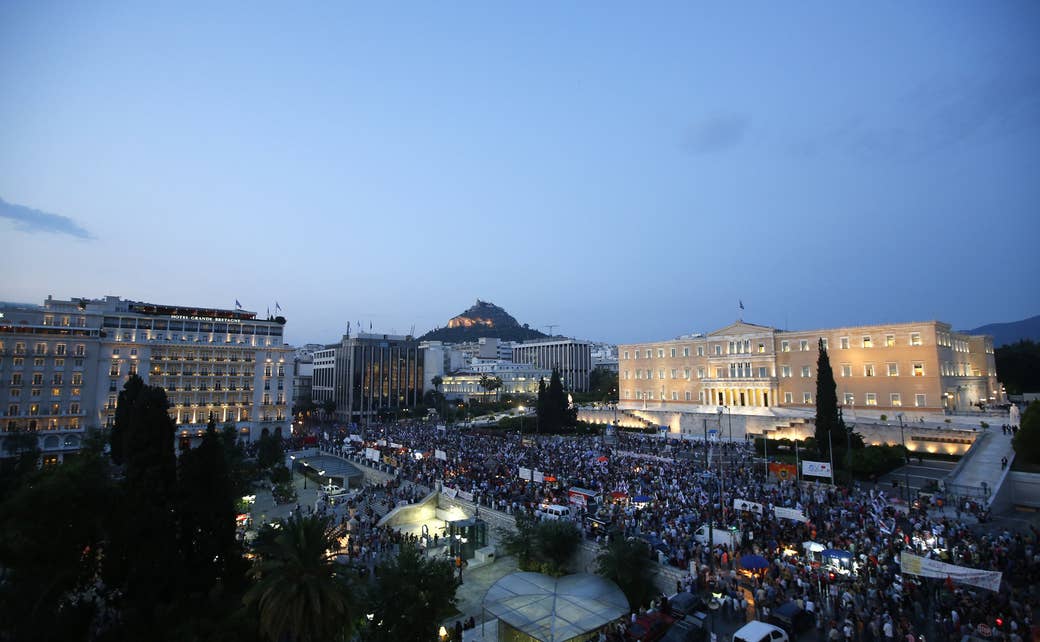
A viral Facebook post featuring Kermit the Frog painted blue said it best: It’s not easy being Greek. As a Greek American — and a journalist covering one of the most complex Greek news stories in a generation — I’m not used to having my thoughts about Greece best summarized by a meme. But this struck a chord. Being Greek these days has been downright painful.
My debt-burdened country is tottering on the edge of financial collapse, banks have been closed for almost three weeks, and Greece’s future in the eurozone is still in question. An agreement to proceed on a third bailout, worth almost $90 billion, has been reached after grueling talks. Greece’s former finance minister Yanis Varoufakis, who resigned earlier this month, likened the deal to “fiscal waterboarding.” And, as my good friend Niki Georgatou put it in a conversation the other day, all Greeks seem to be experiencing a slow form of torture these past few weeks.
Watching Greece in this turbulent moment in its history certainly hurts me to my core. Greece has been my refuge for most of my life. As the child of Greek immigrants, I have been coming here every year since I was a child, spending idyllic summers swimming in the sea with my cousins and playing in the city square. As an adult, I still come here every summer, sometimes in winter too, to recharge my battery. It doesn’t seem like summer to me until I land in Athens, and when I do, it feels like I’ve come home.
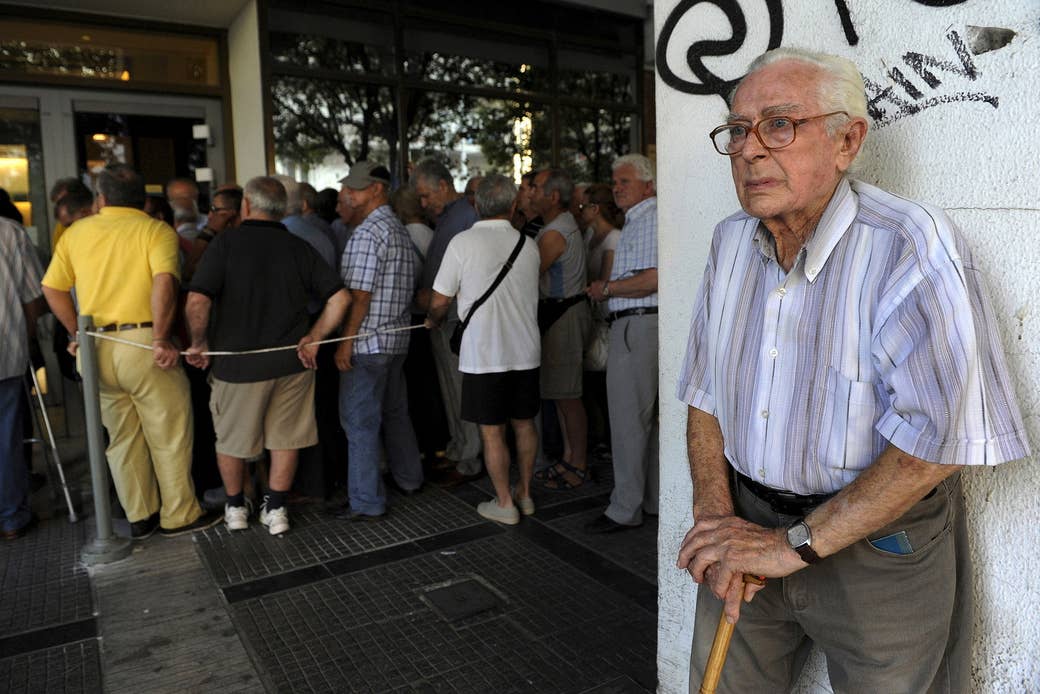
Over the last five years, my trips have included reporting on the growing economic crisis. In simple terms, the country owes a staggering amount of money — over $300 billion —to the eurozone countries, the European Central Bank, and the International Monetary Fund. It’s an incredibly complex matter that comes down to an unpleasant reality: Greece, for a long time, has lived beyond its means. A bloated public sector and persistent corruption have not helped much either.
The last five years, however, something else has been happening: Creditors, to put it simply, have imposed a series of austerity measures that have literally squeezed the life out of Greece’s economy. Taxes went up, salaries were frozen, and pensions and social services were cut. Today, Greece is in a depression more severe than what the United States experienced in the 1930s.
Austerity was supposed to help Greece get out of this mess, but by most accounts, it has not worked. Even the International Monetary Fund has admitted as much. Now the far-left Syriza party has risen to power, on an anti-austerity platform that rolled back many of the reforms demanded by the country's creditors and put in place by the previous, conservative government. Still, unemployment hovers around 30% (nearly 50% for those under 24), salaries in the private sector have been slashed by as much as 60%, hundreds of businesses have closed, and the poverty rate has almost doubled.
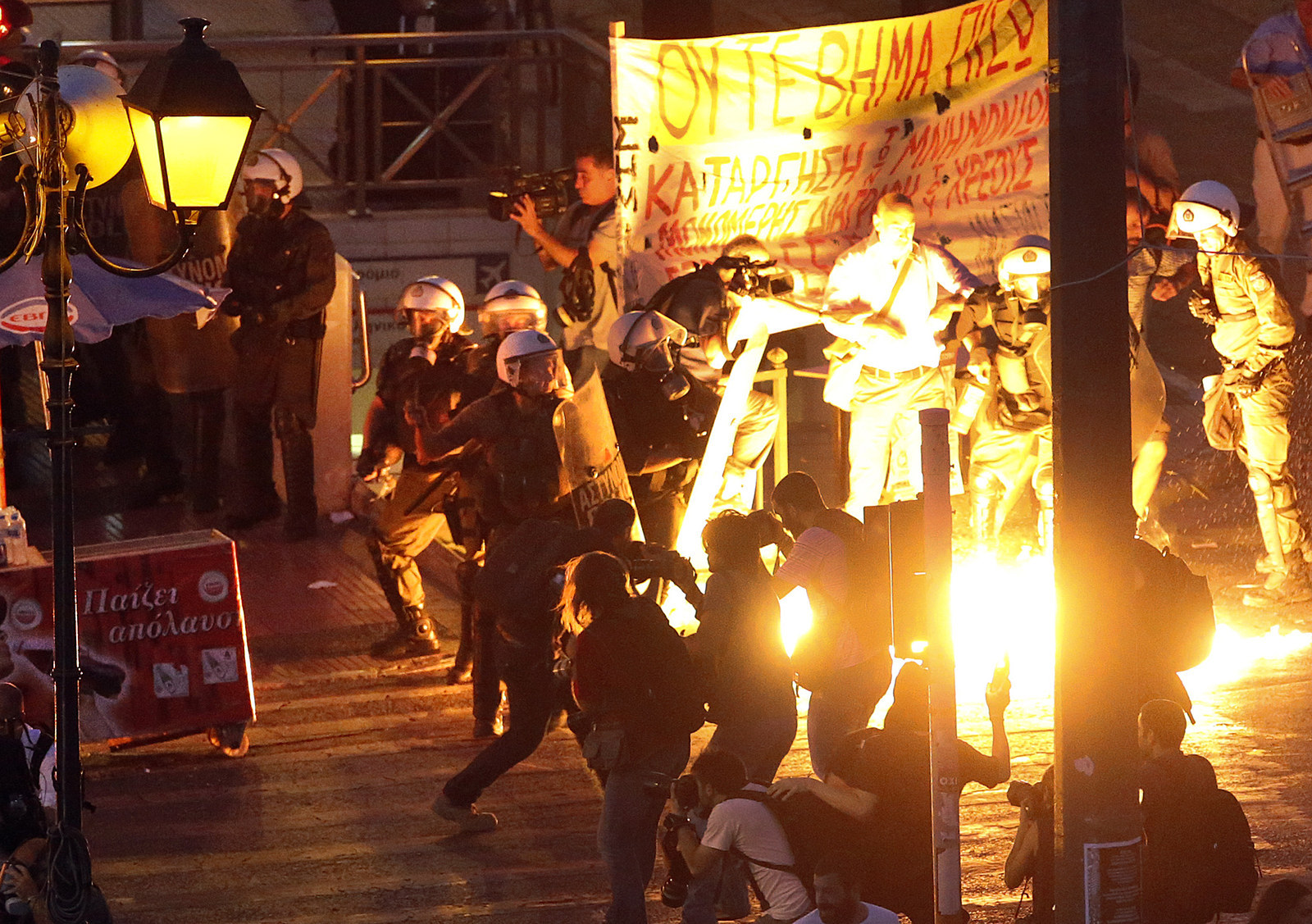
It’s not unusual to see homeless men and women sleeping on park benches, a sight that was not so common even five years ago, or to see people rummaging through trash cans for scraps. Once-thriving commercial neighborhoods are now wastelands of closed stores, their windows plastered over with “For Rent” signs. But life goes on. People have Sunday lunch with friends, vendors sell their wares, children play in squares at dusk.
I arrived in Athens on July 5, on the eve of the snap referendum, which asked Greeks to approve or turn down the bailout offer. In many ways, the question on the ballot became a not-so-subtle survey of whether Greeks wanted to stay or leave the eurozone. The day of the vote was calm, and, by nightfall, it was clear it had gone how Prime Minister Alexis Tsipras, the leader of the radical left party, Syriza, wanted: A large majority voted against the deal, a sign that they’d had it with taking austerity orders from their European partners. Celebrations broke out in Constitution Square in the center of Athens — people waved flags, danced. A day later, the mood was more subdued as reality sank in. The government still had to figure out a way to keep the country from slipping out of the euro and into economic catastrophe. The question on people’s minds was: Now what?
For the dozens of Greeks — friends, strangers, professionals — I’ve talked to, this question has been mind-numbing. People don’t know if they’re coming or going, and politicians seem to be flip-flopping like fish out of water. The news is a continuous, Sisyphean loop: Deadlines loom, calamity seems inevitable, and then the problem seems resolved, at least for the moment. People breathe a sigh of relief that Greece is still standing, only to wake up the next day and see the hand-wringing start all over again.
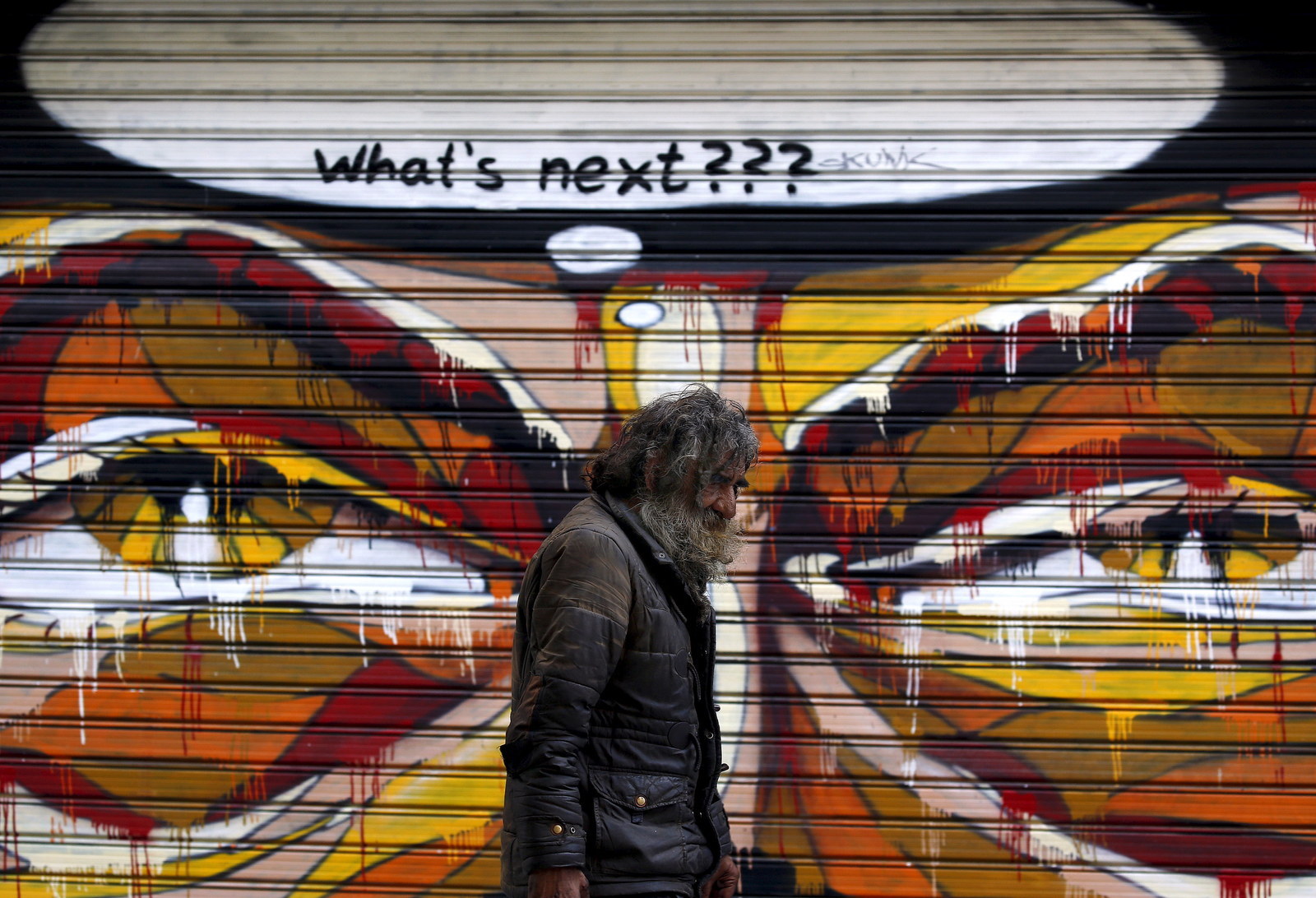
Even the simple meaning of yes and no is not so clear anymore. Following the recommendation of their prime minister, over 60% of Greeks voted “oxi,” Greek for “no,” only to witness the same prime minister do a 180-degree pirouette a week later. Tsipras urged lawmakers twice to vote “nai,” or “yes”: to authorize him to negotiate yet another bailout and then again to approve the deal he brought back with him from Brussels. One news site blasted the headline: “You thought you voted no for the referendum. Think again.”
Greeks are suffering from sleep deprivation, too. Wednesday night’s parliamentary debate and vote finished at 2 a.m., and last Friday’s went until 3:30 a.m. Last weekend, many Greeks waited breathlessly for a 17-hour marathon Euro Summit over Greece’s fate to conclude. Not that Greeks aren’t used to pulling all-nighters, especially in the summer. In good times, especially, Greeks know how to have fun. But this is different. Streets empty out as people huddle in front of televisions to watch the news unfold. My cousin Nikos Nikas, a retiree, joked, “I’ve watched more television these past weeks than I have in the last two years.”
It’s not an exaggeration to say that the crisis has had mood-altering effects. “People are tired and scared and fed up with this situation,“ said Katerina Zymnis Georgalos, a psychotherapist and co-founder of the Hellenic Association for Existential Psychology, which trains psychotherapists. “In our heads, we’re all elsewhere. We can’t concentrate. Our reality has changed, and it keeps changing, by the minute. It’s hard to keep up with the speed of developments.”
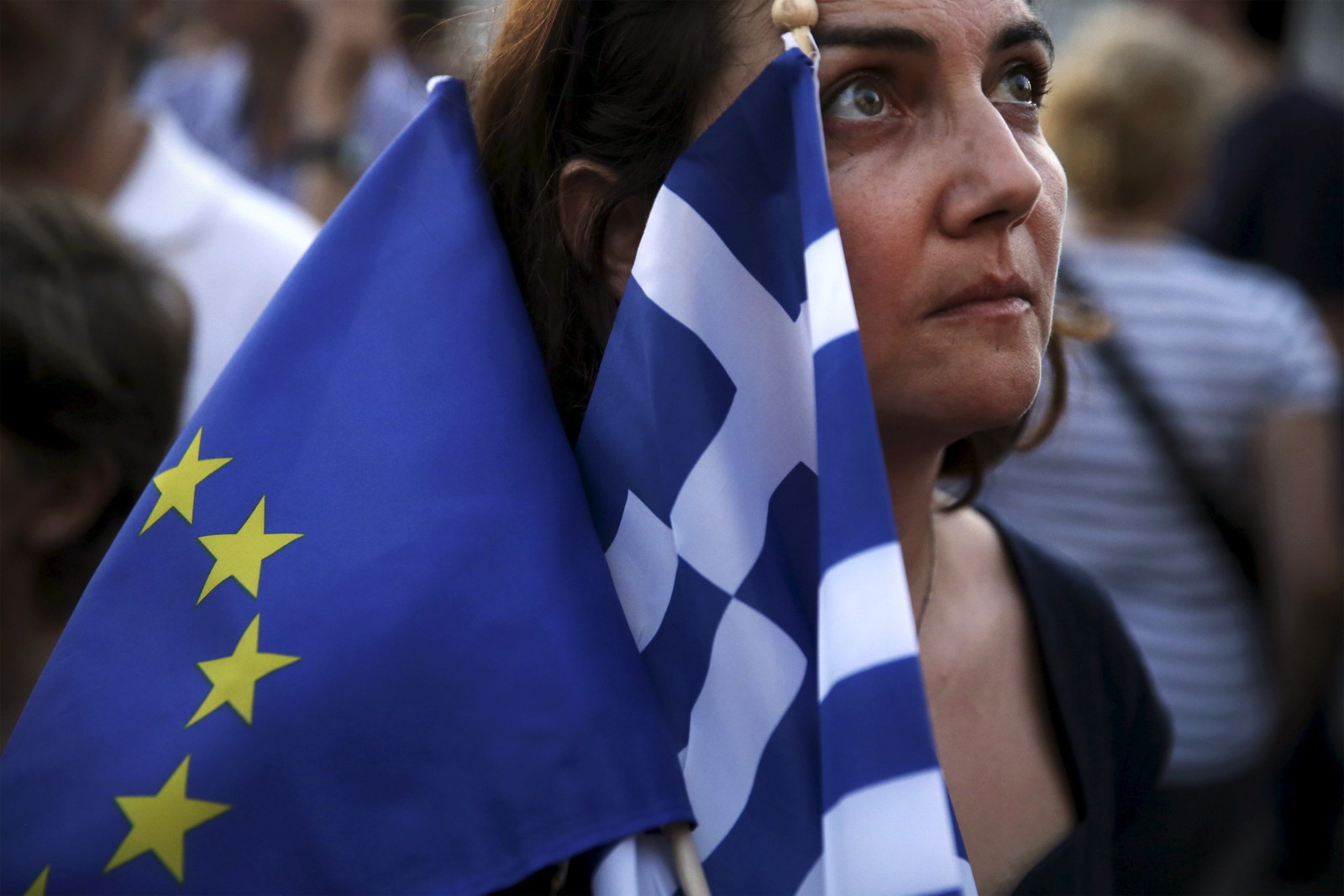
Greeks are also stressing over their personal finances. With banks dangerously close to running out of money and liquidity assistance from the European Central Bank frozen, the government shut down the banking system on June 29 and imposed capital controls to keep money from leaving the country. Since then, Greeks have been limited to taking out only 60 euros in cash a day, or about 67 American dollars. In the first few days, panic ensued, and lines formed outside of ATM machines. Queues snaked down the street, 20 people deep. After the Financial Times reported that the government was considering raiding bank account holders’ savings deposits — as happened in Cyprus in 2013 — the panic level went up a notch. People also worried that Greece would go back to the drachma, rendering their euros far less valuable. At lunch last Sunday, a corporate executive raised his glass of wine: “To next year with the euro.”
Among the tensest are the elderly pensioners without debit cards, who have been forced to stand in line once a week in searing heat to get their allotment of 120 euros. One little-publicized fact in the international media coverage: Domestic online bill paying has gone on as usual. It’s not like transactions have ground to a complete halt on a personal level. At first, many restaurants and retailers refused to take credit cards, and Greeks have been unable to use the online payment system PayPal. But when I took my laptop to a repair shop in a northern suburb earlier this week, the clerk asked for cash, only to happily accept my Greek bank-issued credit card a day later.
When this will end — and what Greece will look like when it’s over — is anyone’s guess. People are scared, anxious, and genuinely pained. The day after the referendum, Yiorgos Goulias, a 68-year-old engineer, told me, “We love our country. It hurts me to see this.” He grabbed my arm gently and his eyes welled up. For the first time in my 30-plus years as a reporter, I had to walk away because I was afraid I might cry as well.
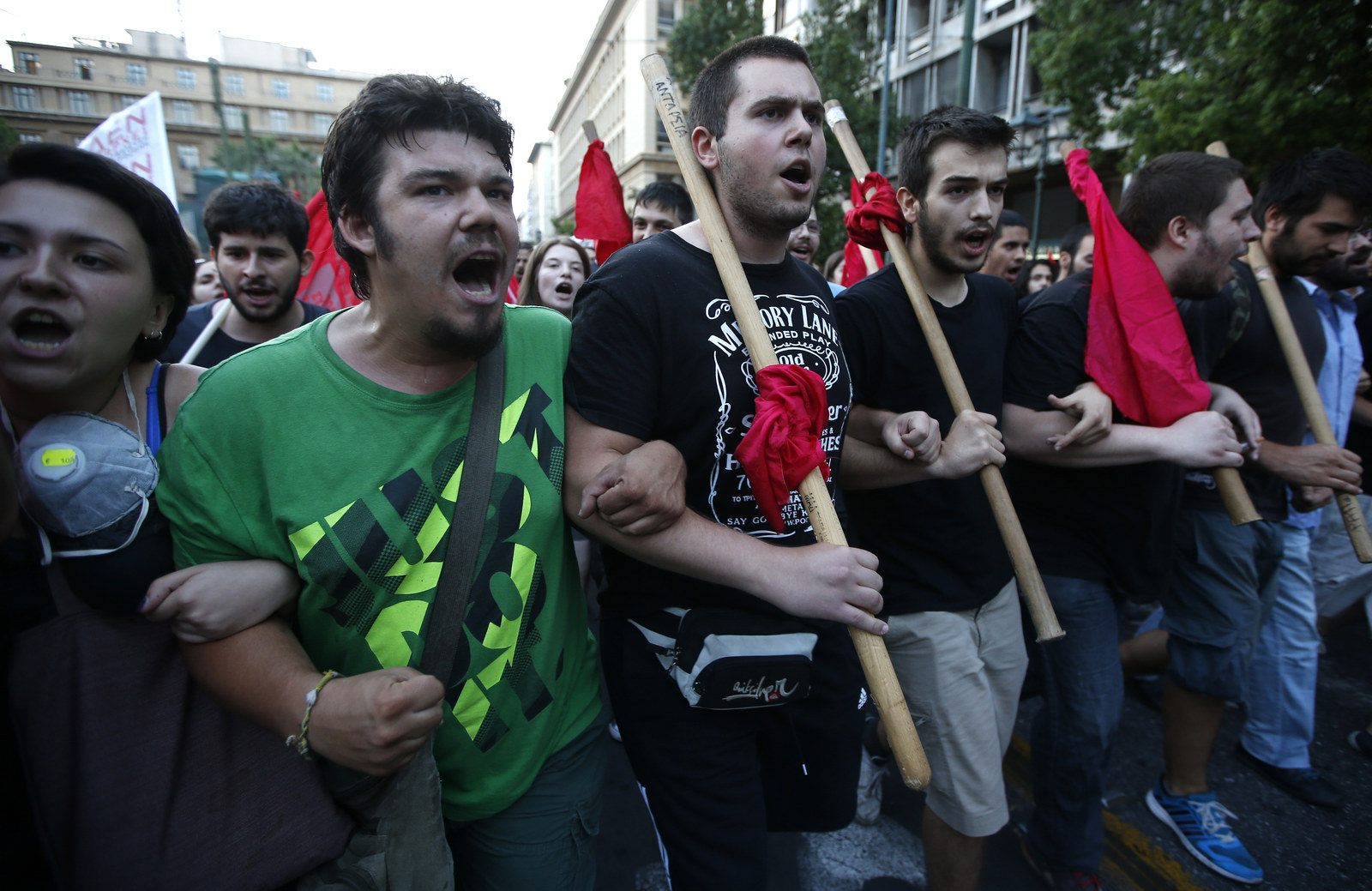
Greeks are fiercely proud of the democratic values born in Greece, and they’re tired of being vilified — during the last five years, and particularly over the last few days — as spendthrifts who don’t want to pay their debts. Rectifying this reputation will bring years of even more pain. The third bailout agreement will require even deeper austerity measures: more budget cuts, taxes on the things they buy, and pension reforms that will gradually push Greece’s retirement age back to 67.
Hellenes convey their emotions easily, shout a lot, and laugh easily. Stoic Northern Europeans they are not. But Greeks are resilient and will get through this as they have in the past, surviving the Nazi occupation during World War II and a military dictatorship from 1967 to 1974. No matter how bad it gets, they will maintain their humor through it all.
In the wee hours of Saturday morning — after the hours-long parliamentary debate and vote concluded — broadcast crews and journalists tumbled into Constitution Square, where the parliament building is located. Suddenly, according to one live satellite specialist, a pickup truck packed with watermelons passed by. To the reporters’ amusement, the driver honked and shouted into a loudspeaker, as if nothing monumental had just happened: “Hey guys, want some fresh watermelon? It’s the best.”
